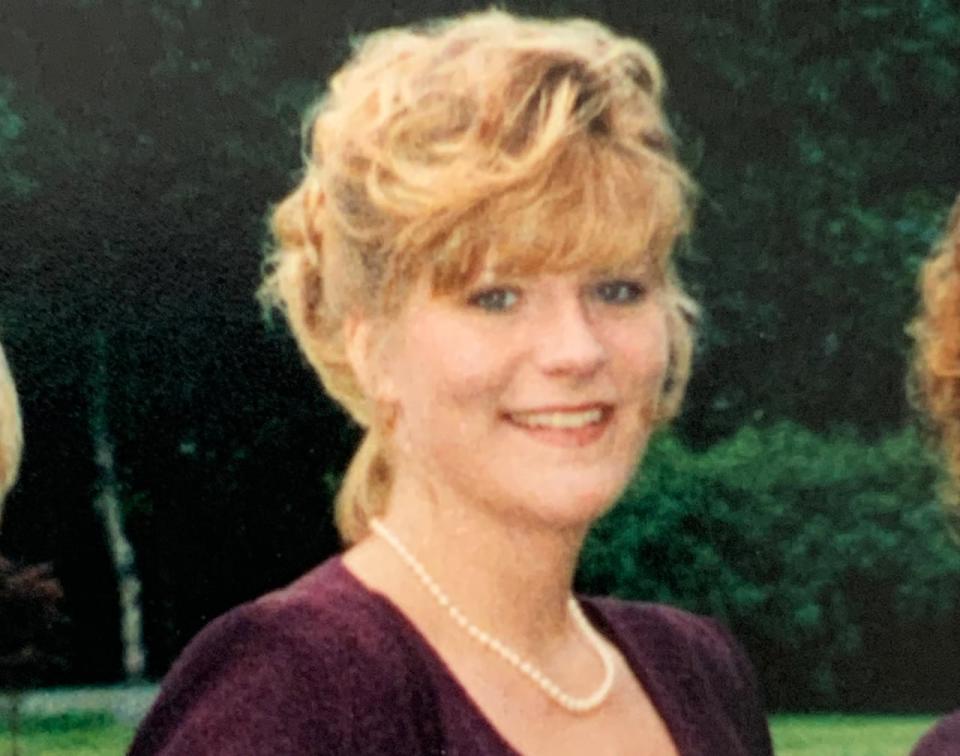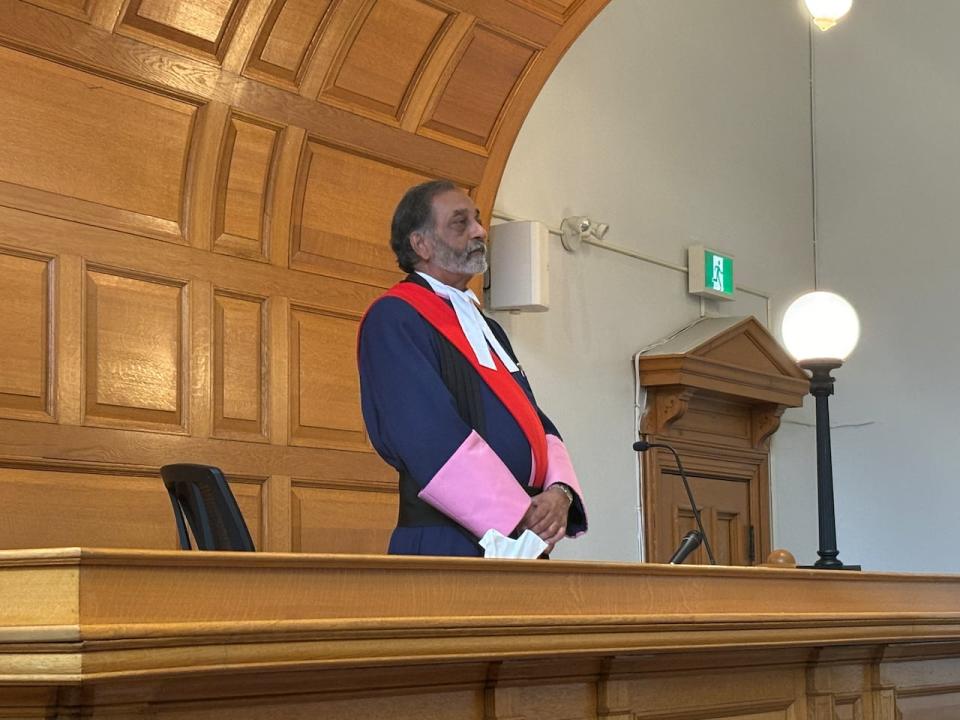Boarding house conditions factor into 5½-year sentence for Rayna Dove's killer
Rayna Dove and David Quirke were both living in state of fear inside a St. John's boarding house on Dec. 27, 2021, when a fight over a simple butter knife turned into a fatal stabbing.
Dove, 41, was killed and Quirke, then 20 years old, was charged with murder. He would later plead guilty to the lesser charge of manslaughter.
Justice Vikas Khaladkar gave weight to the fear they felt in his sentencing decision Tuesday, saying it was an underlying part of Quirke's condition when he decided to stab Dove three times.
He sentenced Quirke to 5½ years in prison, with credit for about three years of time already served.
"They were actuated by fear," Khaladkar said. "Afraid of their living situation and afraid of where they found themselves, afraid of the people they were with."

Quirke and Dove were neighbours inside a for-profit shelter on Cookstown Road in downtown St. John's. Those types of shelters — including the one they lived in — have been subject to complaints about dirty and scary living conditions for years.
The butter knife was a valuable tool inside the boarding house. It was used to pry open locked doors from the outside, and could be jammed in a door to make it secure from the inside.
Dove asked to borrow one from Quirke that evening, but Quirke grew angry when she didn't return it. An agreed statement of facts in the case says he began pounding on the wall between their rooms, prompting Dove to storm into Quirke's room. An altercation ensued, and Quirke knocked Dove to the ground and dragged her out into the hallway. He then went back into his room and grabbed an actual knife to arm himself. Dove came toward the room a second time, and Quirke stabbed her.

The incident was caught on closed-circuit television, which captured her pleading for help. A recording of Quirke calling 911 — in which Quirke was "overwrought and weeping," according to Khaladkar, and admitted to stabbing Dove.— was also entered into evidence,
In his sentencing decision, Khaladkar said it reflected positively on Quirke's case that he called 911 and showed genuine remorse when explaining the situation to the operator. He also didn't attempt to claim self-defence in the case but admitted his actions were not an appropriate response to any threat Dove may have posed.
"This convinces me he is truly sorry for what he's done," Khaladkar said.
What didn't help his case, however, is the fact that he didn't listen to the orders of the 911 operator, who told him to find something to apply pressure to Dove's wounds. Khaladkar said she may have survived if Quirke had listened.
Quirke has no previous criminal record and no history of addictions to alcohol or drugs. He ended up in the boarding house after moving from Ontario to Marystown and having a falling-out with members of his family. He moved into St. John's and found shelter on Cookstown Road.
The court heard he has attention deficit hyperactivity disorder and bipolar disorder, and has since been diagnosed with post-traumatic stress disorder.
Shelter standards a must, says NDP
Both Quirke and Dove told their families they were living in fear and decried the conditions of the house, which lawyers described as a "hellhole," according to previous court reporting from the St. John's Telegram.
Dove's mother, Joan Dunphy, dedicated part of her victim impact statement to what she read in her daughter's diaries about the shelter.
"She had voiced her concerns to her social worker and had requested a safer place to live," Dunphy said. "These journal notes show how hard she was trying. But was anybody listening?"
Newfoundland and Labrador appears to be the only province that relies on for-profit providers for shelter services.
The province wound down its use of private landlords after extensive reporting by CBC News in 2019 — and another killing outside a downtown St. John's shelter — but leaned back into the system during the COVID-19 pandemic. Homelessness spiked in 2021, and levels have not returned to pre-COVID norms.
In another recent case, Dwayne Ginn, 39, fatally stabbed Mark Hamlyn, 41, at a boarding house on Old Bay Bulls Road in 2022. He was sentenced to six years in prison.
Despite spending hundreds of dollars per night on the accommodations, the province does not have specific standards outlining the minimum level of service that must be provided for their money.
Newfoundland and Labrador Housing contracted a company to provide those standards. An access-to-information request filed by the provincial NDP shows they were supposed to be implemented June 3 but weren't.
"While we have been waiting for the release of shelter standards, we have watched news stories about the murder of Rayna Dove, killed in a bedsit room," said NDP Leader Jim Dinn. "We heard about recently released inmates who would rather live in a tent that go to a shelter."
Download our free CBC News app to sign up for push alerts for CBC Newfoundland and Labrador. Click here to visit our landing page.


